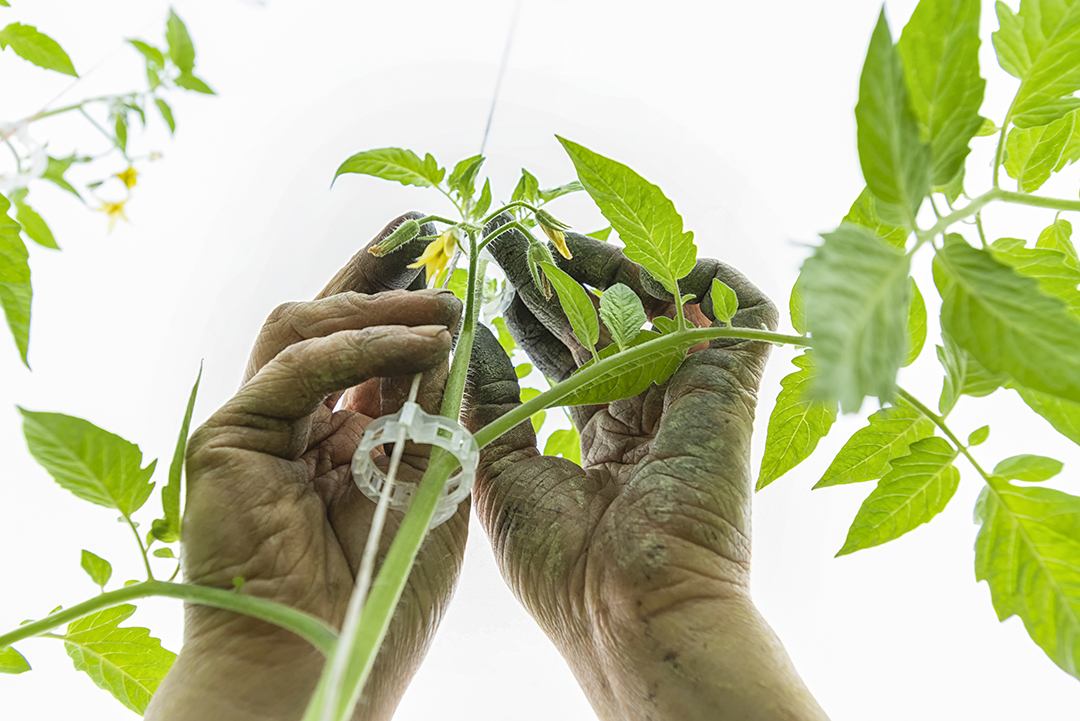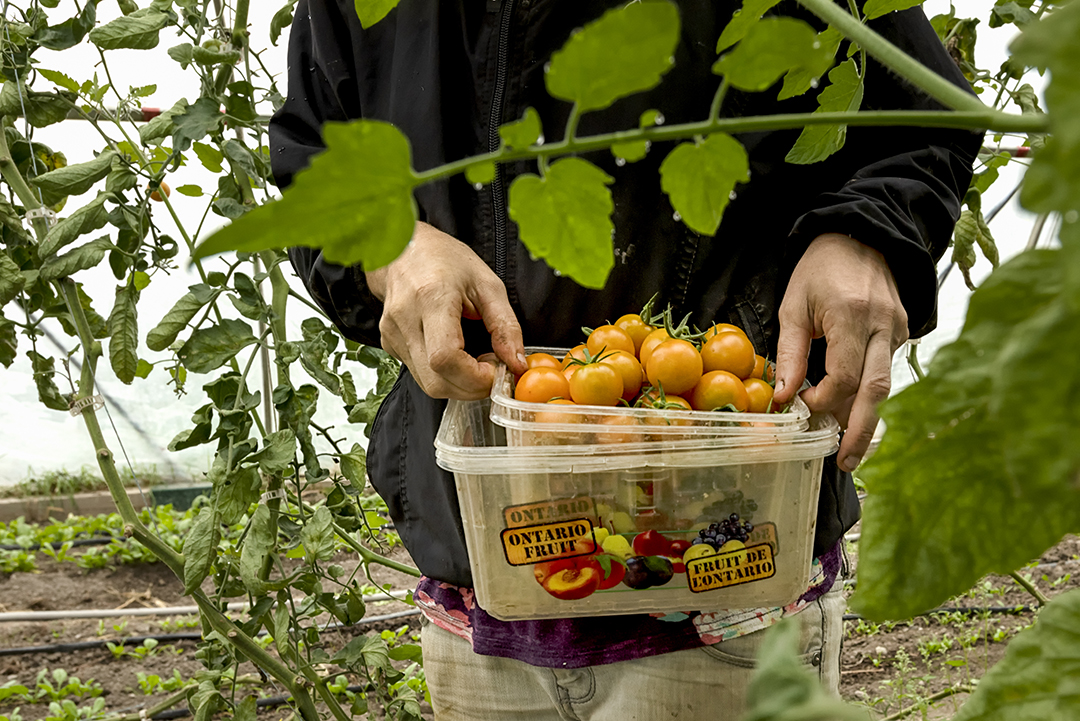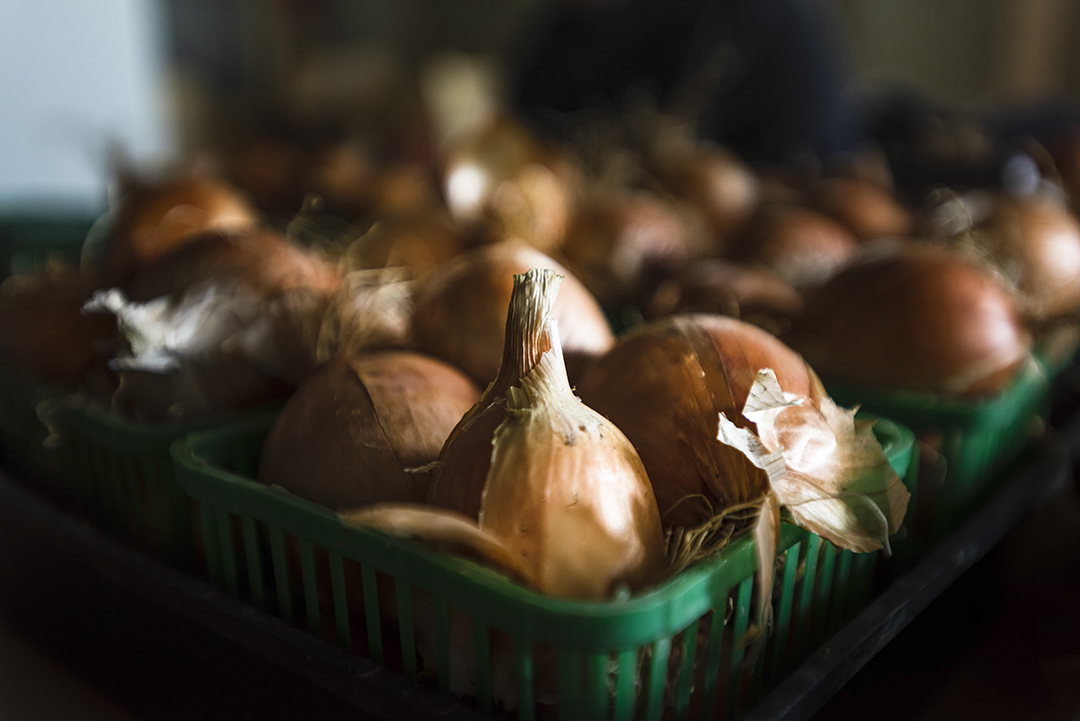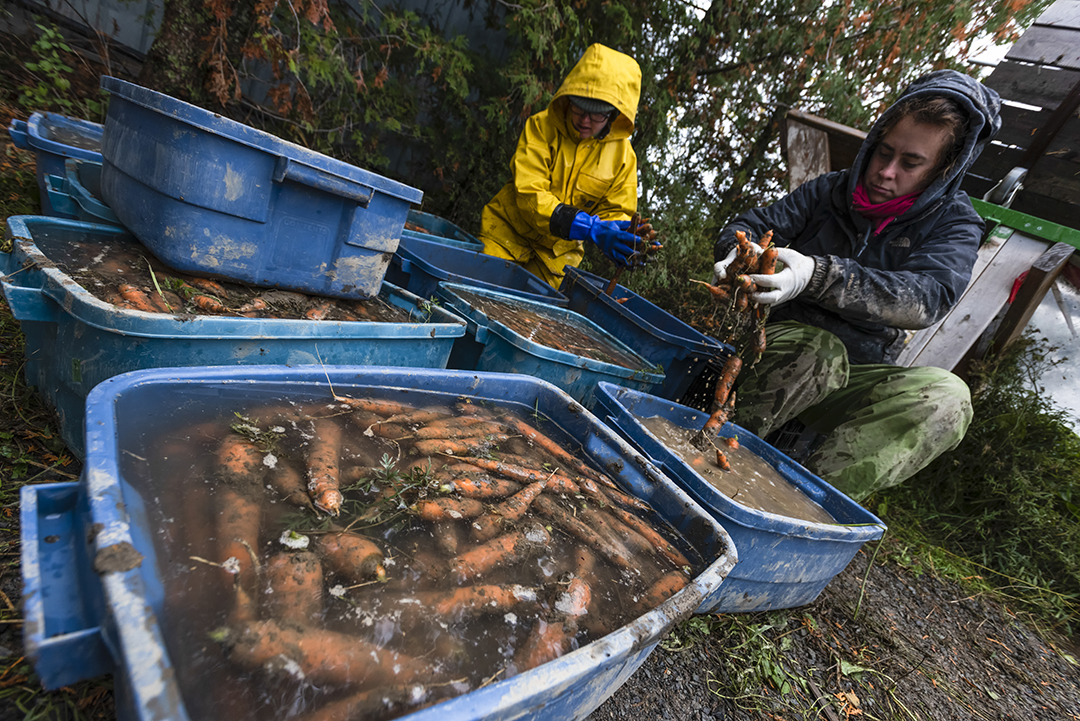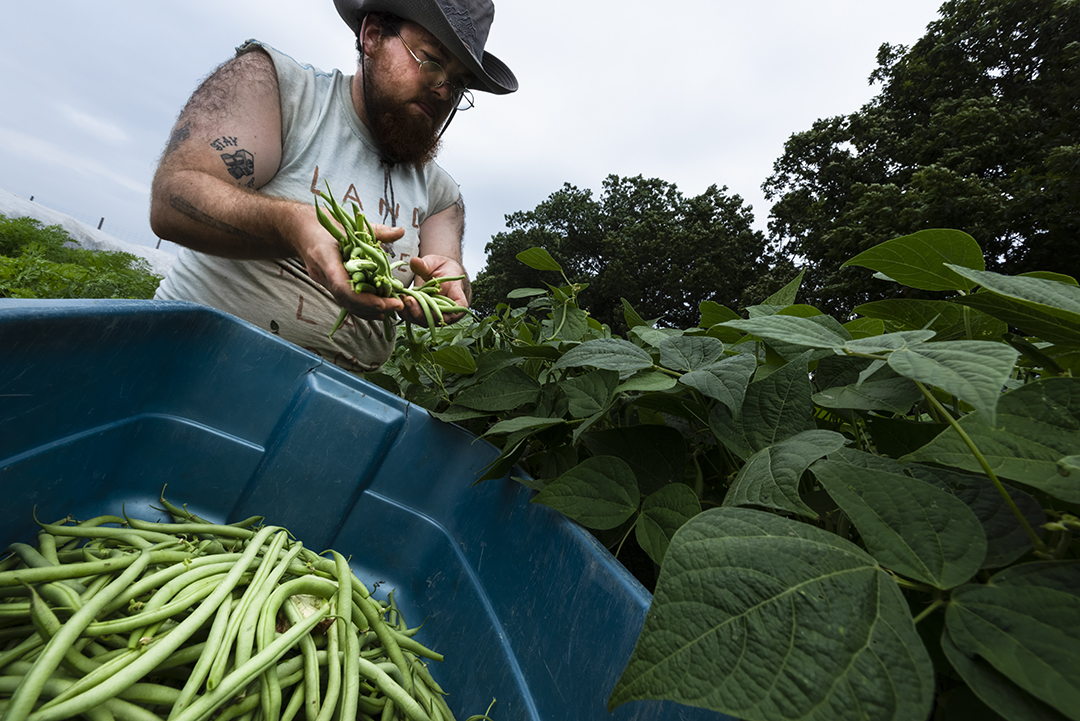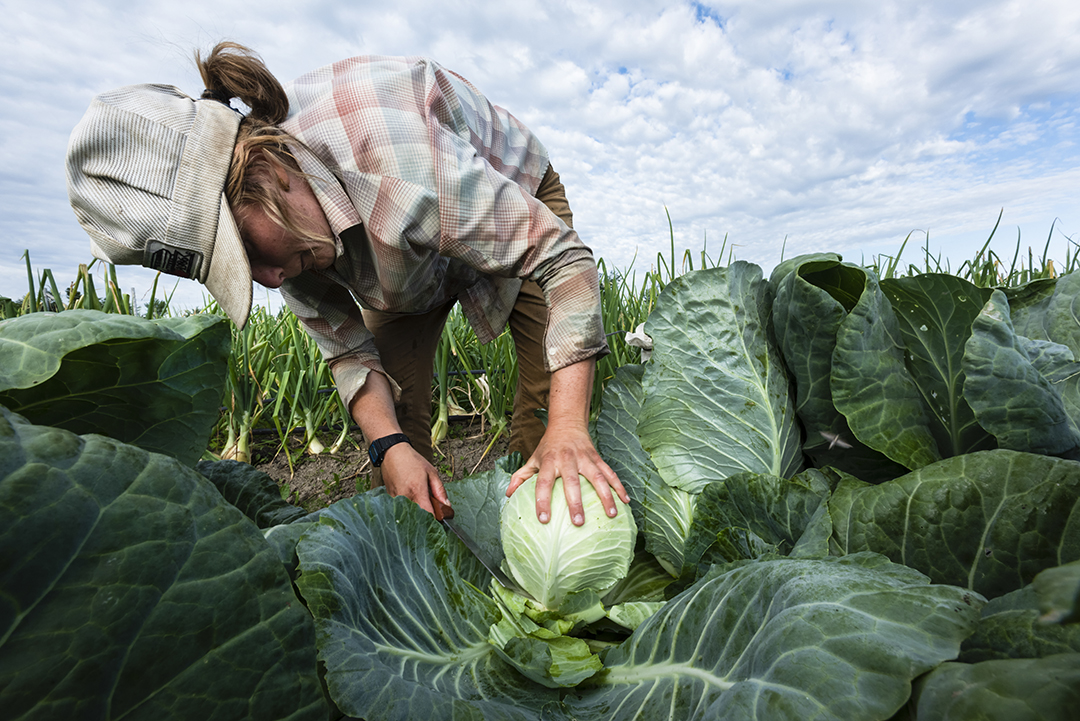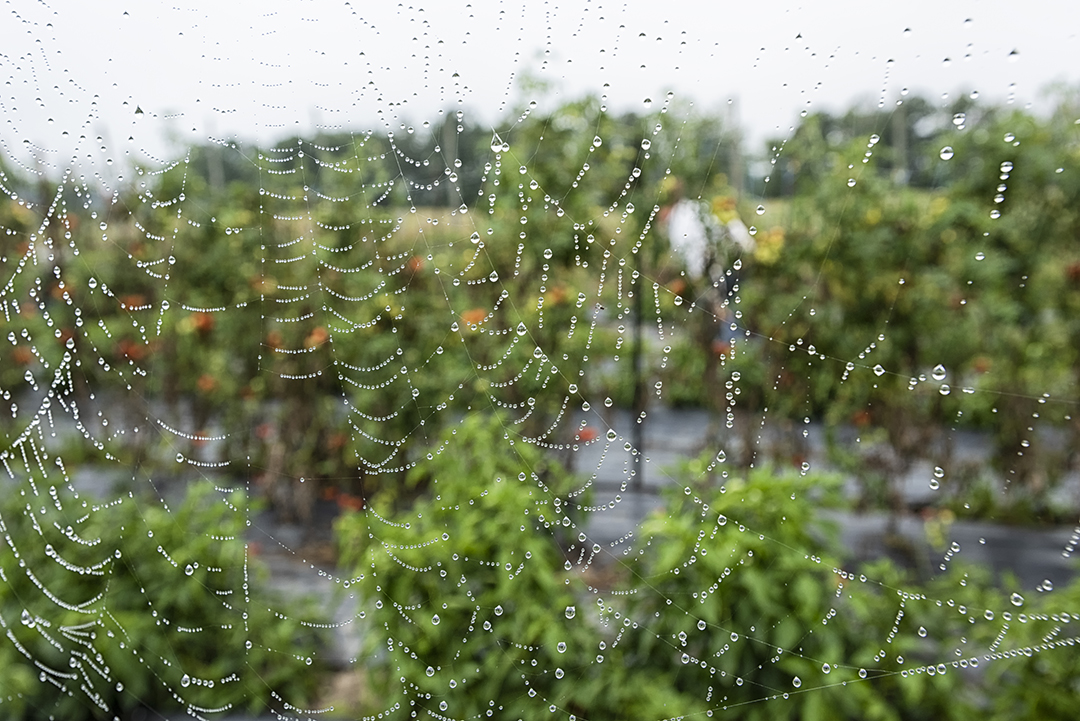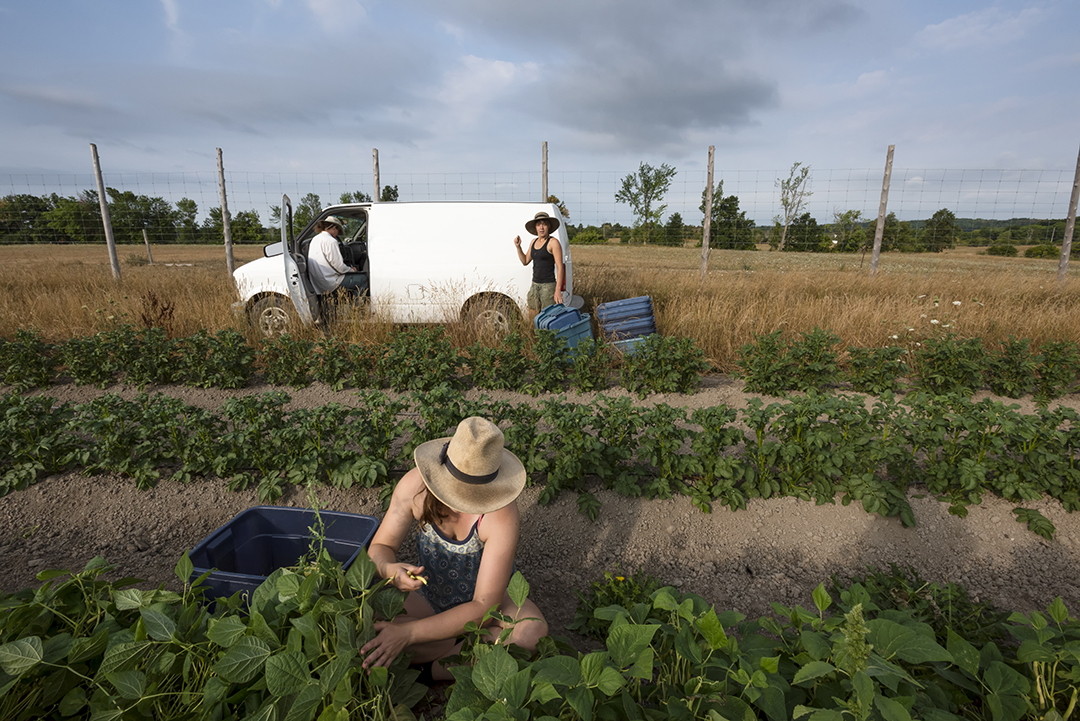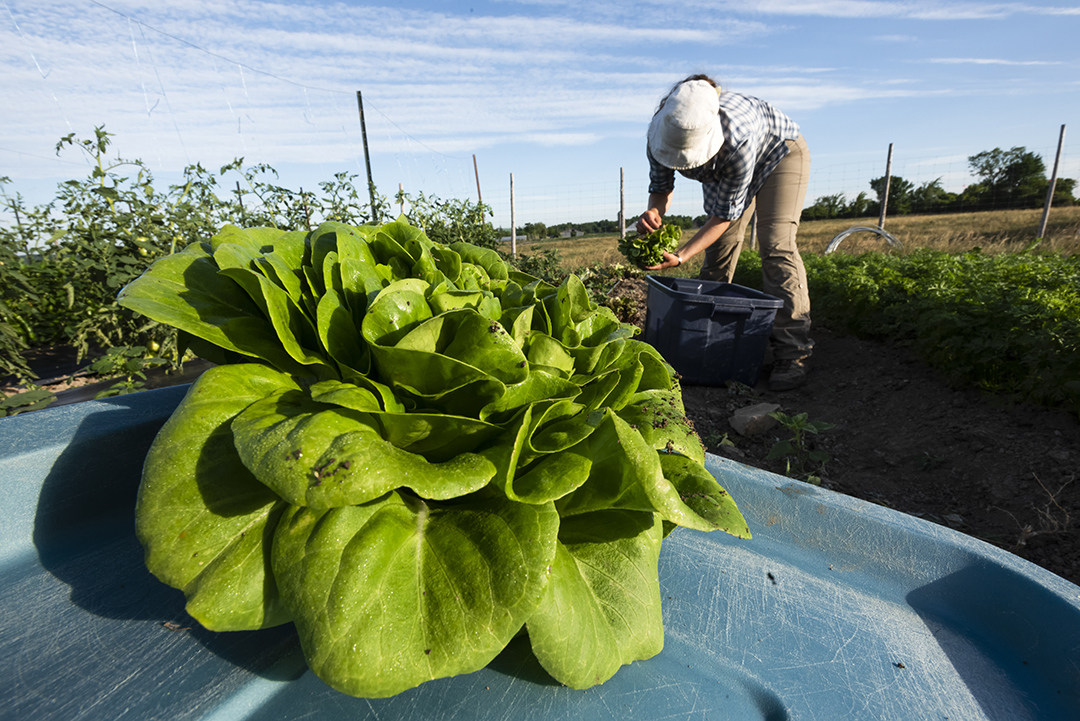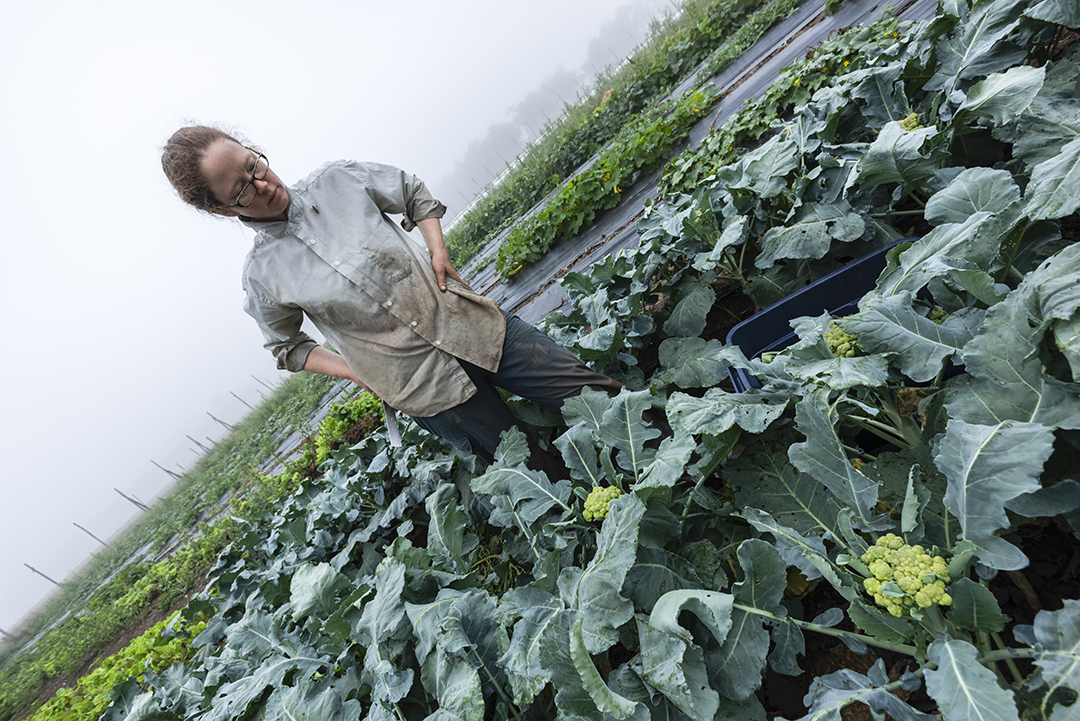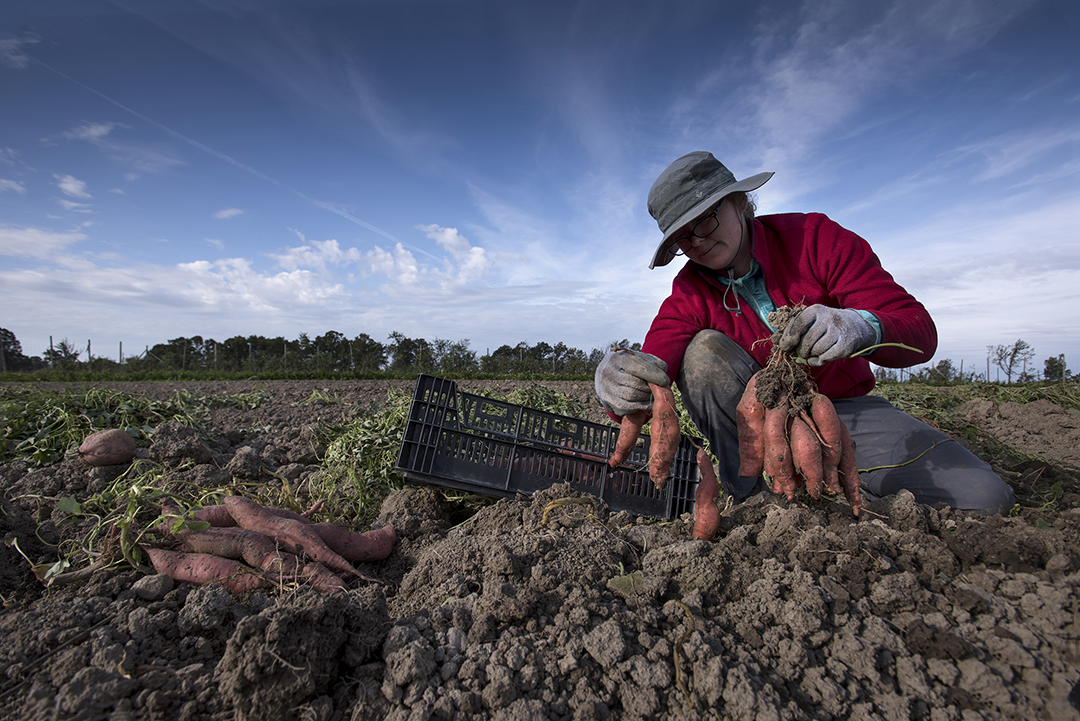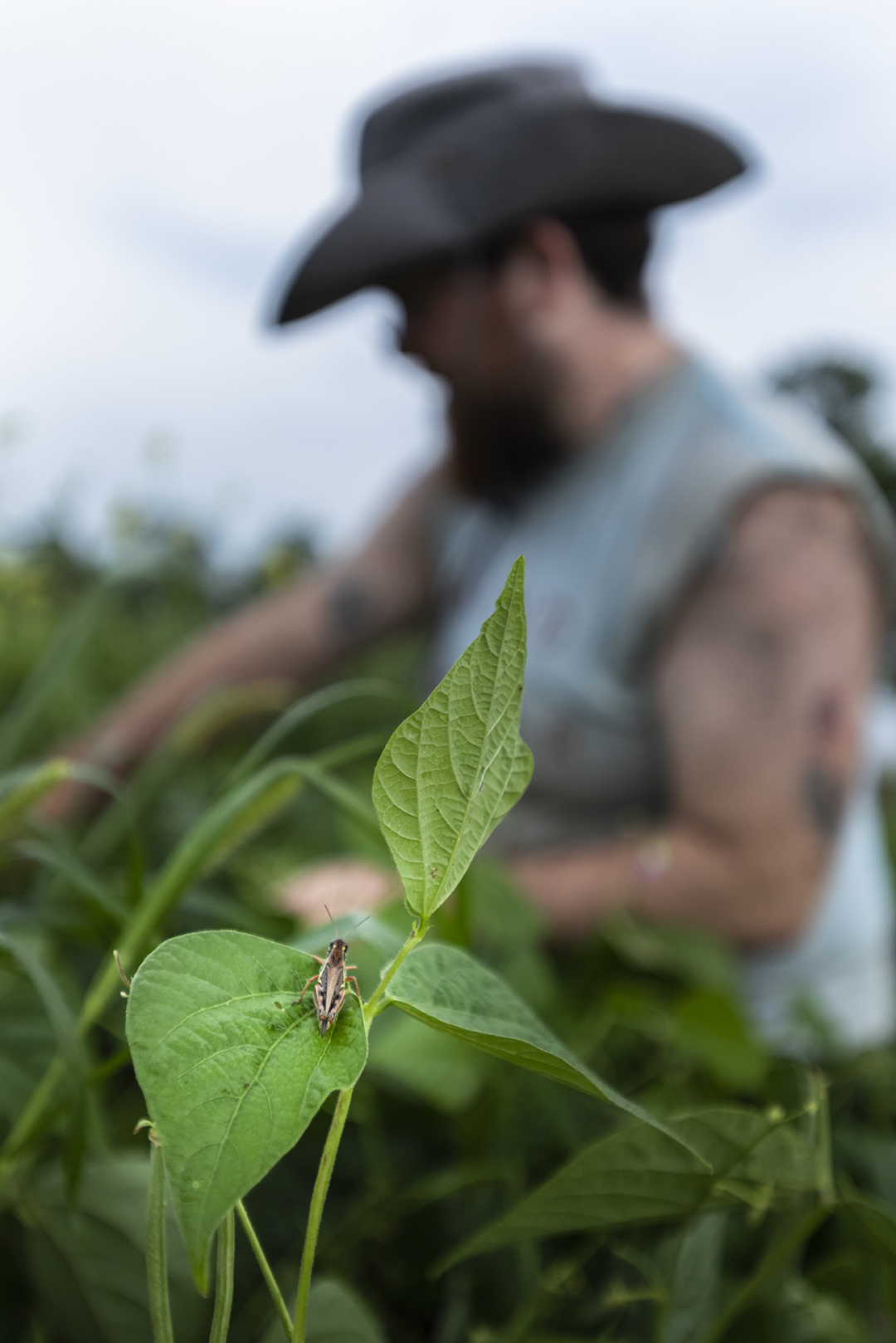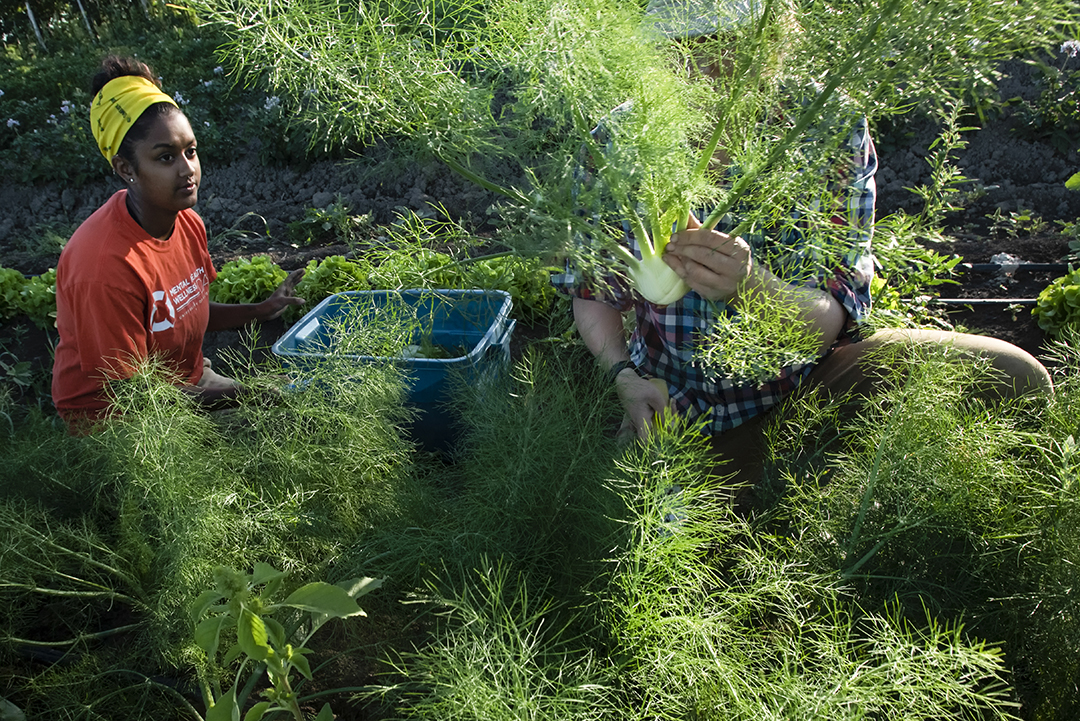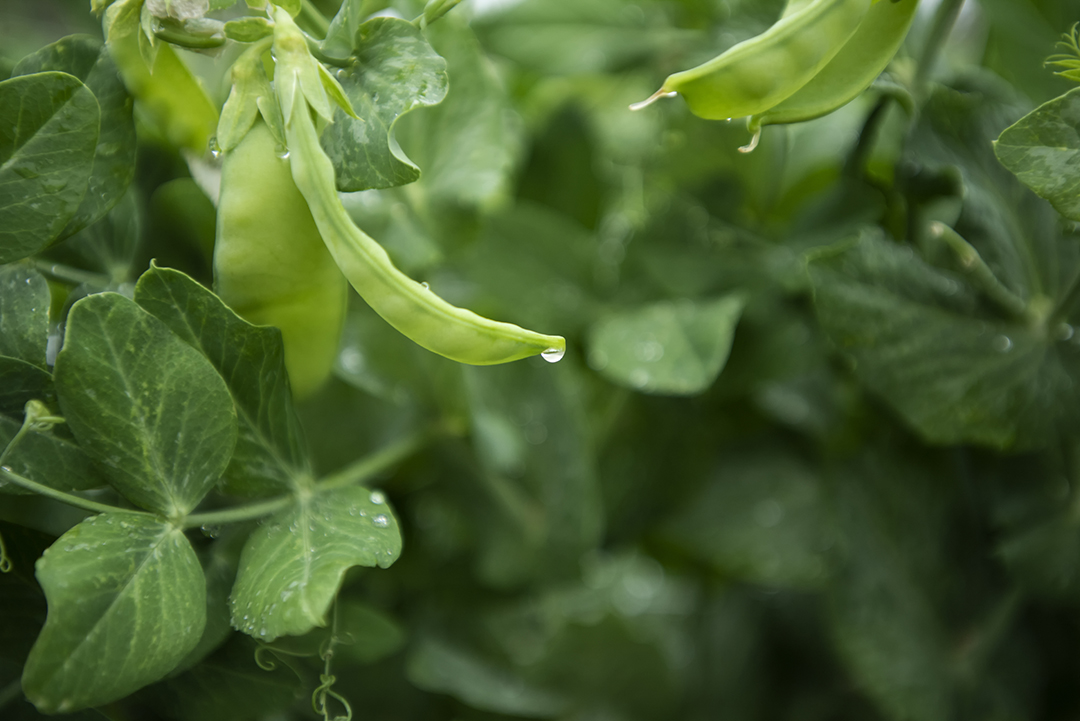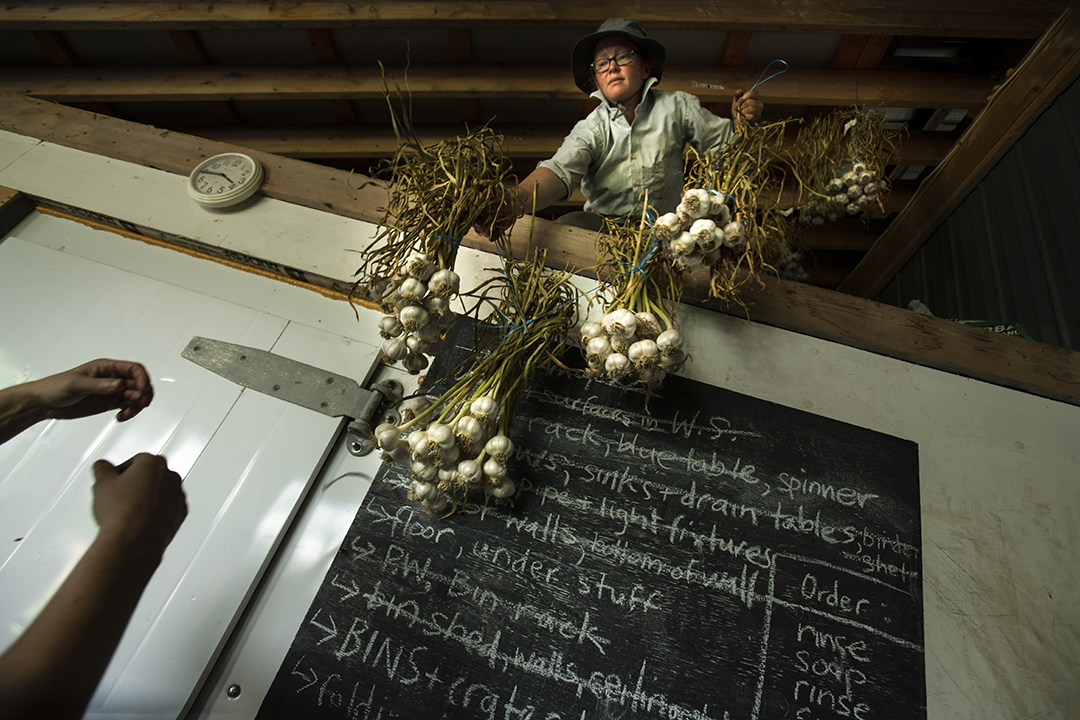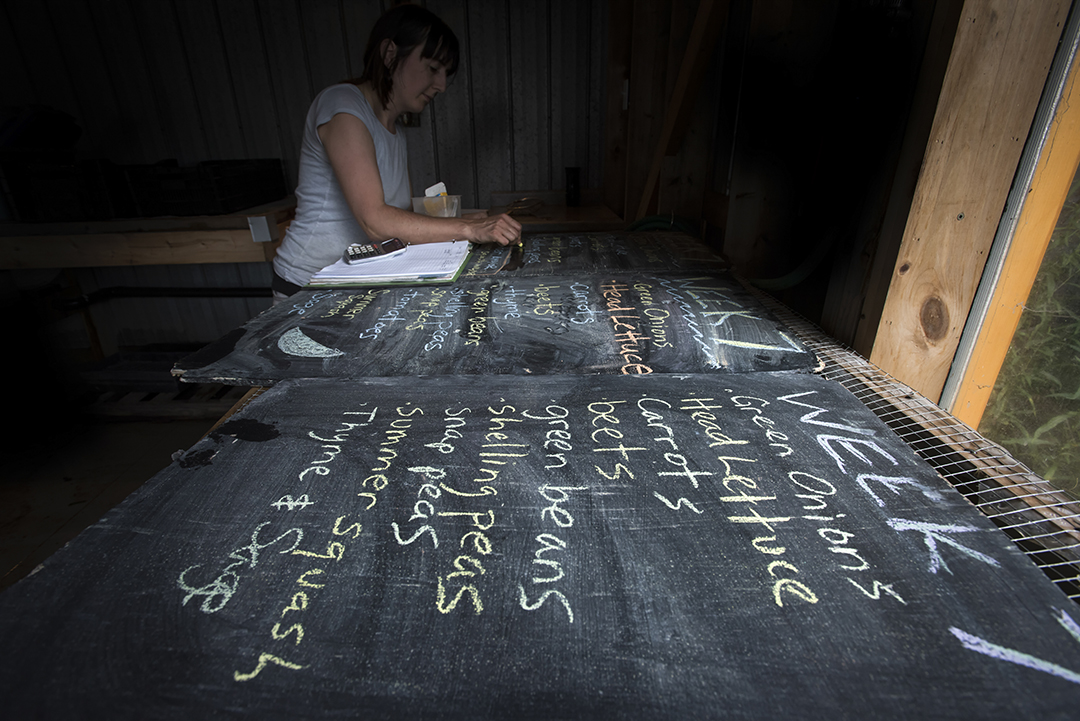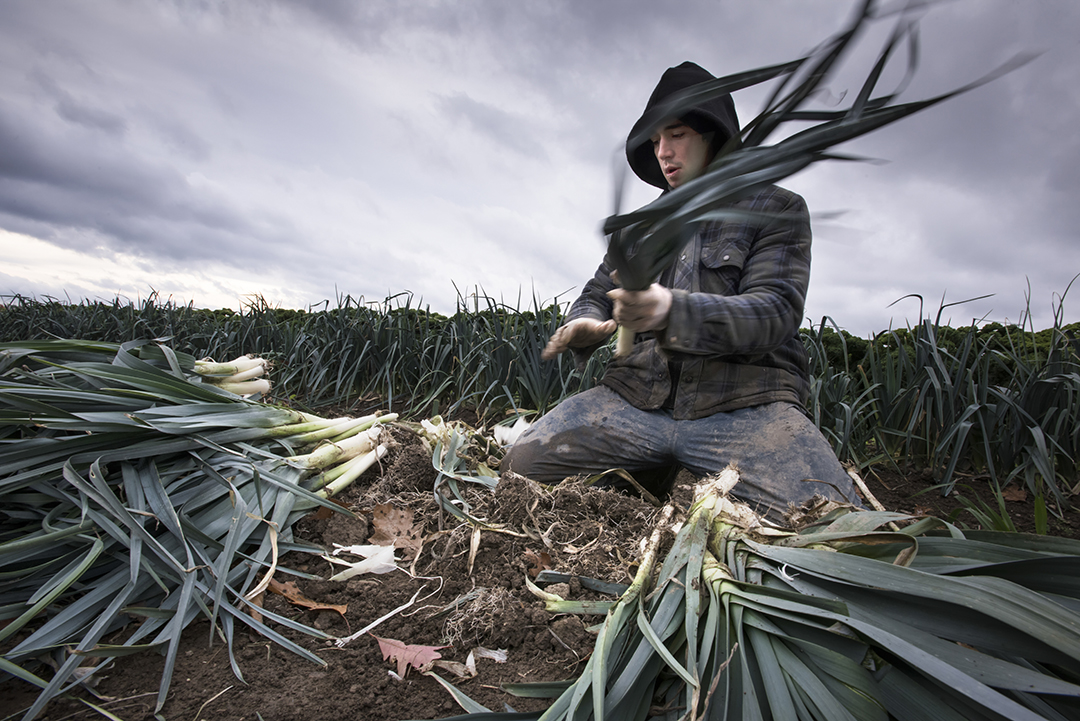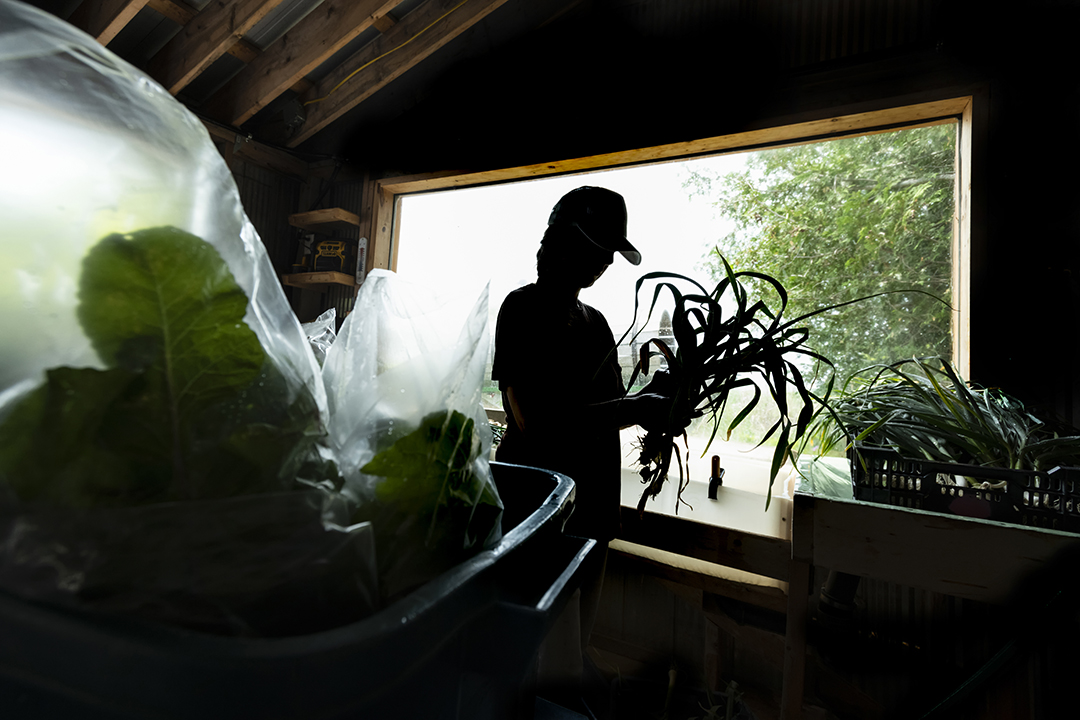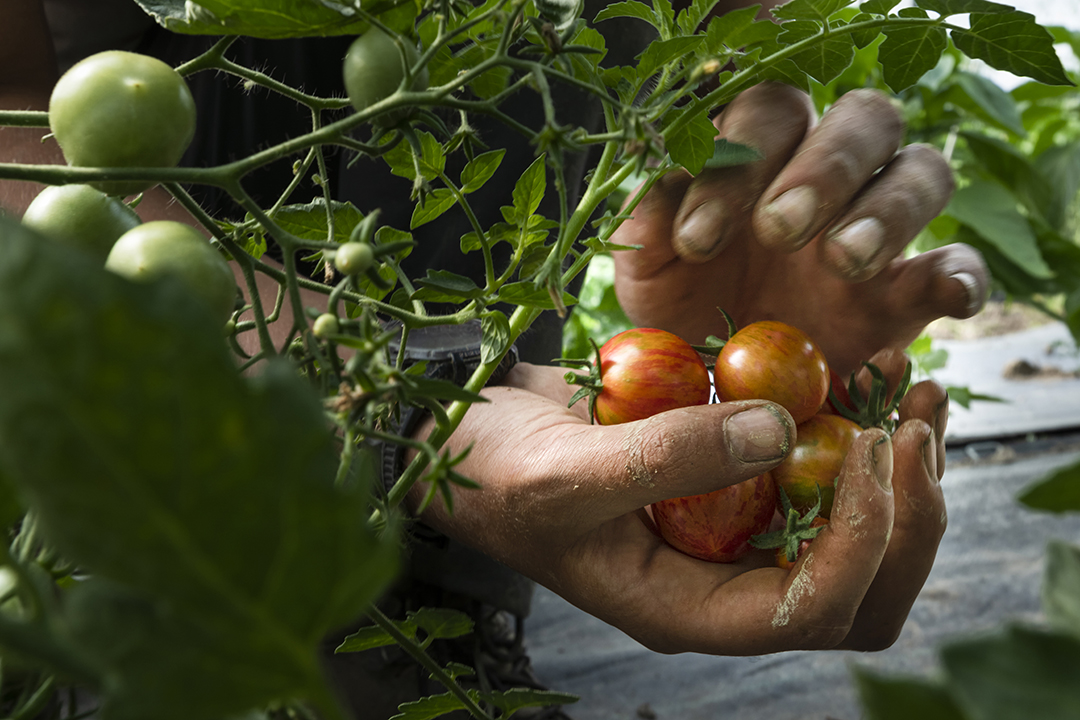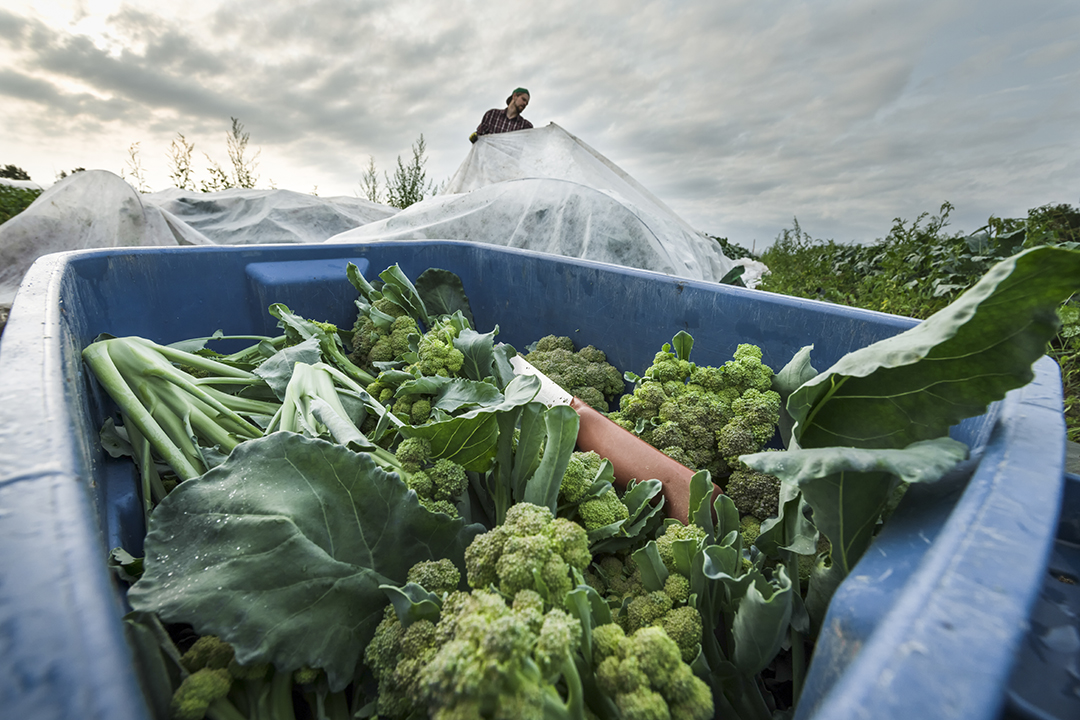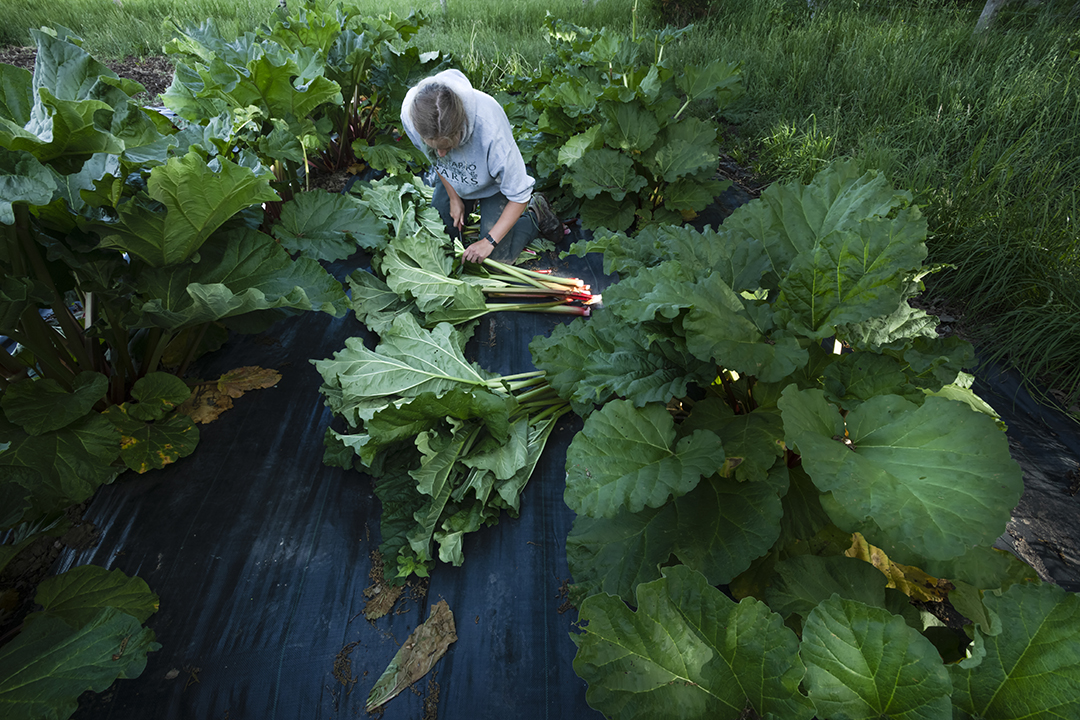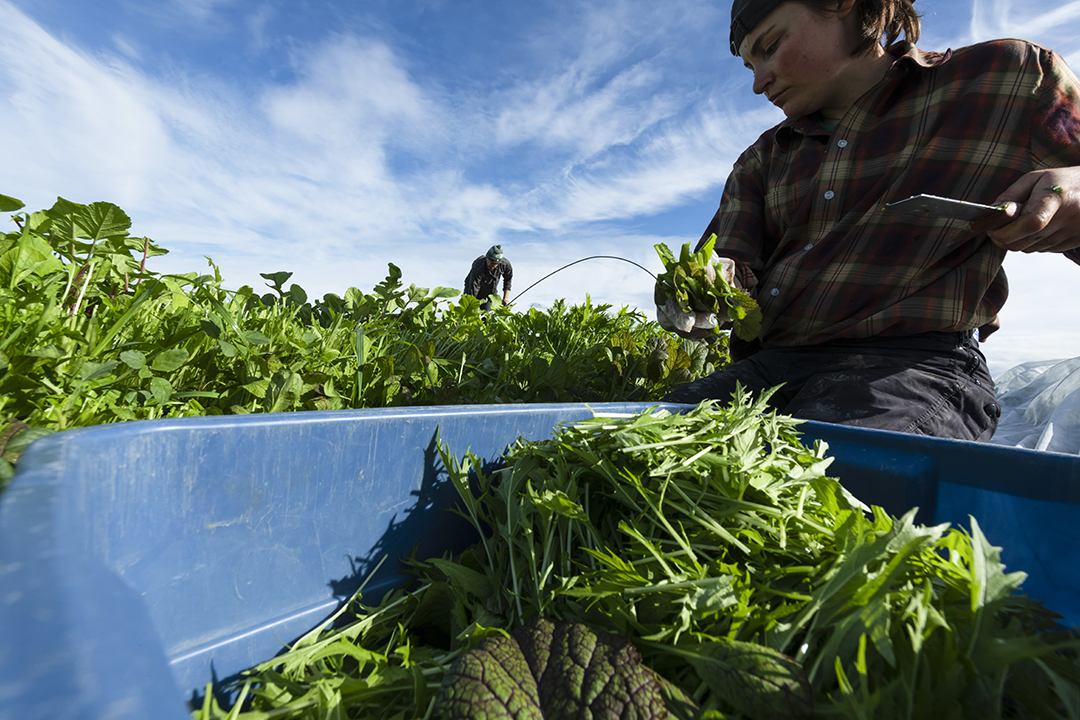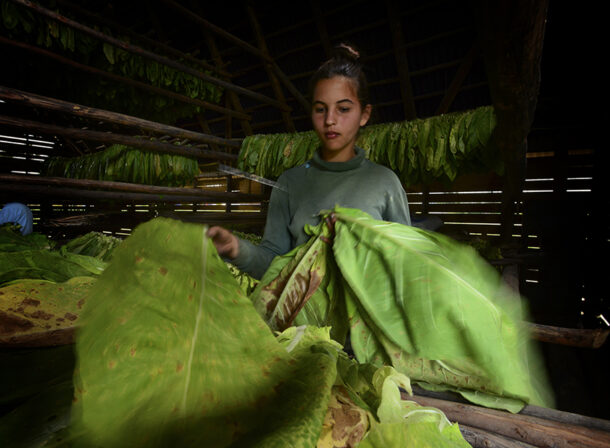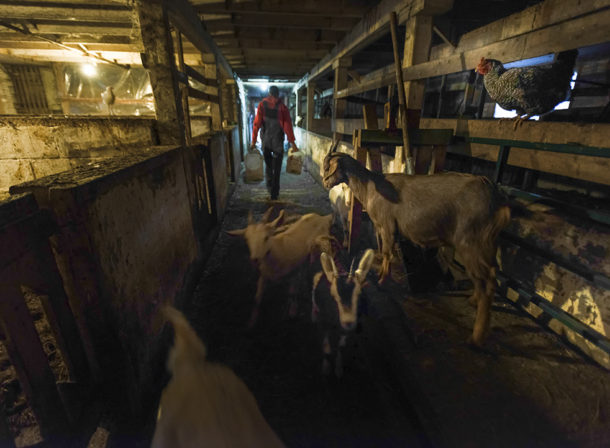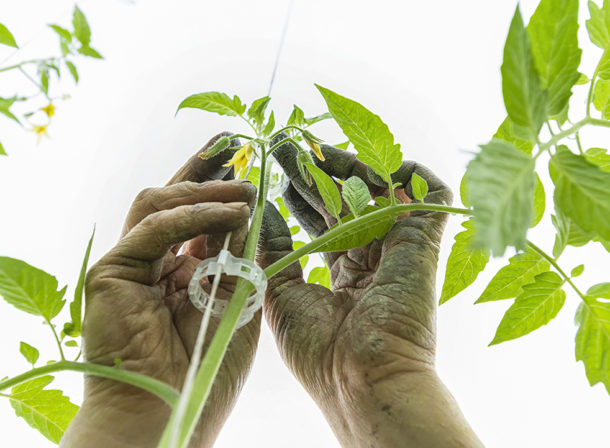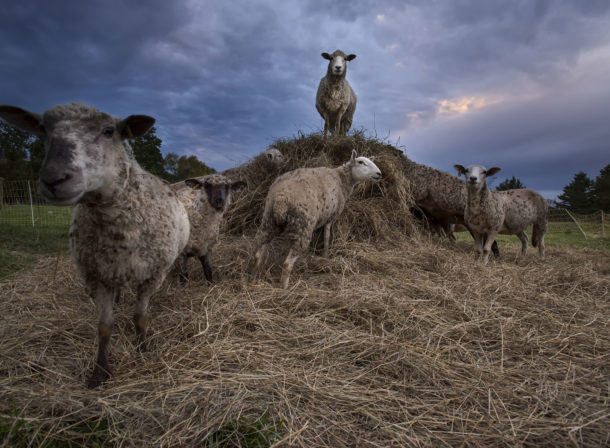Root Radical Community Shared Agriculture
“It’s the community that keeps me going,” says Emily Dowling. At Root Radical Community Shared Agriculture, she’s responsible for growing and delivering food for more than 250 households every week. “It inspires me to interact with the people who eat the food I grow. And it inspires me to see how eating it has improved their lives.”
Emily grew up at Doublejay Farm with her brother Tim and parents Dianne and Peter. The dairy farming lifestyle didn’t appeal to her, and as a young person she didn’t think farming was her future. Things changed when she went away for school, and found out about the Community Shared Agriculture (CSA) model.
In the CSA system, customers buy a share or membership from a farm for the growing season, and get a diverse box of seasonal vegetables each week. Members of a CSA can have a face-to-face relationship with their farmer, and Root Radical’s sliding-scale fee structure makes healthy food more accessible to people of various income levels.
The CSA model gave Emily some of the things she felt were missing from her farm experience growing up. “I get to have direct feedback from consumers, and work predominantly outdoors.”
“I actually do enjoy spending hours pruning tomatoes or weeding carrots. I find it very satisfying,” she says. “Looking out at the beds and seeing nice straight rows with healthy plants growing, or picking a nice big carrot, that’s motivating.”
There is also plenty of opportunity to interact with the CSA members, and to help members to understand the food system more deeply. “People say ‘oh, your food tastes so much better than the grocery store.’ But they don’t always think about the social and economic and environmental differences. They don’t always stay in touch with the suffering that’s embodied in grocery store food.”
Emily sees the CSA as an opportunity to inform members about the challenges and realities of the food system, and to build their food skills. She’s created dozens of different educational resources about eating and preparing fresh local food. The farm holds regular work-bees—so that members can come out and get their hands dirty. And the farm has also hosted Rad Kids farm camp, an educational day camp for children.
The daily work at Root Radical involves a lot of variety. The first three months of the year are taken up by hiring staff, promoting the CSA, planning the garden, ordering seeds, and creating educational materials. Spring involves greenhouse work, bed preparation, and planting and transplanting several acres of vegetables. The CSA uses organic practices, and improves soil fertility by planting cover crops and using compost produced on-farm. Emily also farms with her partner, Aric McBay, who is responsible for building or maintaining much of the operation’s infrastructure and equipment.
Harvest days happen twice weekly beginning in early June; Emily and staff start harvesting at 7:00 a.m., and Emily drives the vegetables to delivery depots in Kingston in the evening.
The variety is nice, but the work is hard. Emily works 10 to 12 hour days every day of the week during the growing season, from the start of greenhouse planting in March until the end of vegetable delivery in November.
"We usually have a crew of five working together in the fields and having enthusiastic and hard-working people on the crew makes a big difference."
Emily’s next farm goal is “better work-life balance.” She says: “There’s no time to enjoy the quality of life benefits that are supposed to come with being a farmer, the country lifestyle.”
She also manages six staff and over 50 different vegetable crops, so when she isn’t working outside she’s planning and organizing—which is tough when you are exhausted. “I don’t have a lot of capacity for planning if I’m doing physical labour outside for hours a day, in all kinds of weather.”
Emily says her biggest challenge is finding and retaining employees. “Most people are not able to stay with the farm for more than a couple of years, because wages are low. And wages are low mostly because it’s farming, and if you make any money at all in farming it’s considered a success, unfortunately.
“In a lot of farms, the owners don’t make much money. They pour everything into land and infrastructure. They have equity, but they don’t have cash flow for their own living expenses. They end up working other jobs to support the farm.
“Beyond the farming community, most people aren’t accustomed to that,” she notes. “Understandably, most people don’t want to sacrifice like that for a business that’s not their own.”
Each year, Emily makes adjustments to try to improve her work-life balance. And she constantly works to improve the sustainability of the farm, and to communicate better with the CSA members about social and environmental issues.
“My goals are different from those of a typical business,” says Emily. “It’s not about getting bigger or making more money at the cost of my values. I’m most inspired by farmers who have integrated social justice and environmental education into their farms.”


